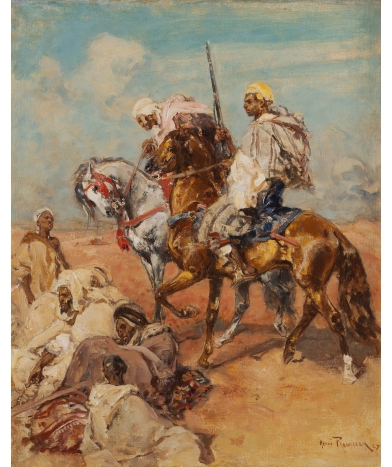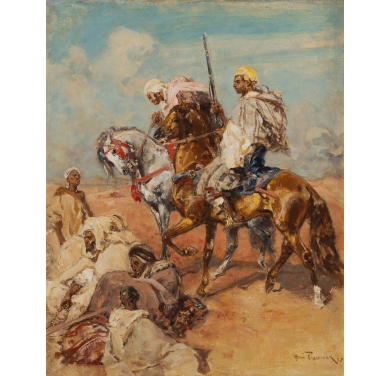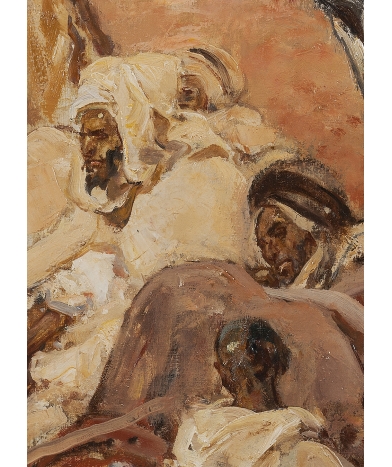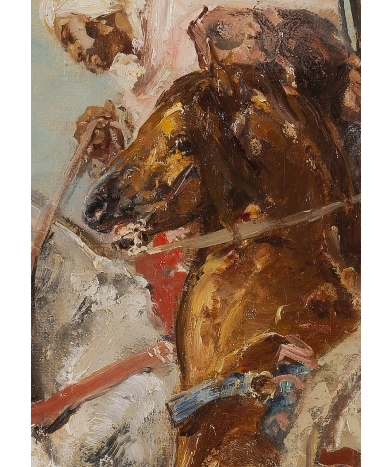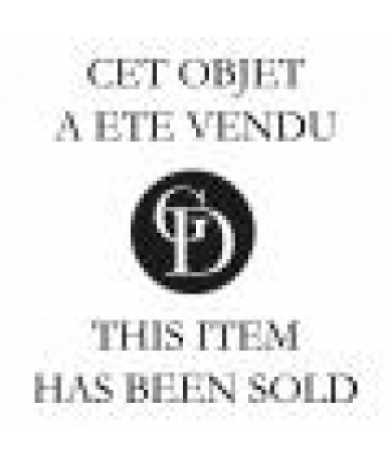Henri Emilien Rousseau (1875-1933) - The Arrival of the Riders
Oil on canvas signed and dated 27 lower right
Dimensions : H. 65 x L. 54 cm (with frame: H. 95 x L. 83 cm)
Henri Emilien Rousseau was born in 1875 in Cairo. Among the French Orientalists of the late 19th and early 20th centuries, Henri Emilien Rousseau occupies a prominent place, thanks in particular to his remarkable representations of Arabian horses.
He was a pupil of Jean-Léon Gérôme, the most famous French Orientalist after Delacroix. Henri Rousseau was awarded the second Grand Prix de Rome in 1900, and thanks to a travel grant he visited Holland and Belgium, and the following year Spain, Tunisia and Algeria. He returned to North Africa several times before the First World War. From 1920 to 1932, he worked in Morocco, which allows us to situate our painting.
Henri Emilien Rousseau exhibited in Paris, at the Salon des Artistes Français, and participated in numerous international exhibitions in Belgium, Holland, England, Sweden, Brazil, Argentina, and Japan. His favourite subjects are scenes of nomadic life, movements of horsemen, vast landscapes, inspired by North Africa or the Camargue. Today, equestrian subjects are by far the most sought after and expensive.
Our painting is an important work by Rousseau. First of all, it is a very large canvas compared to the many small equestrian views executed by the artist; the vertical direction is also rare for Rousseau. This format allows for a rich and well-balanced composition, with numerous figures and two riders. The sky, animated by clouds, is worked with lightness and transparency to perfectly suggest the effects of the wind on the sand. In contrast, the dress of the horses and the clothes of the characters are worked in full pate, catching the light to make the bright colours of the scene burst forth. In this painting, Rousseau has also mobilised an incredibly varied and subtle palette of reds and browns. This painting is in absolutely perfect condition, on its original canvas and without repainting. The paint material is intact and only slightly cracked. The superb wood and gilded stucco frame is old, but probably not the original one.
Museums :
Musée des Beaux-Arts d'Amiens, Nantes, Mulhouse, Chambery ....
Louvre Museum, Château de Versailles
Ger Eenens Collection the Netherlands
...
Bibliography :
E. Bénézit, Gründ edition, Tome XII, page 28.


